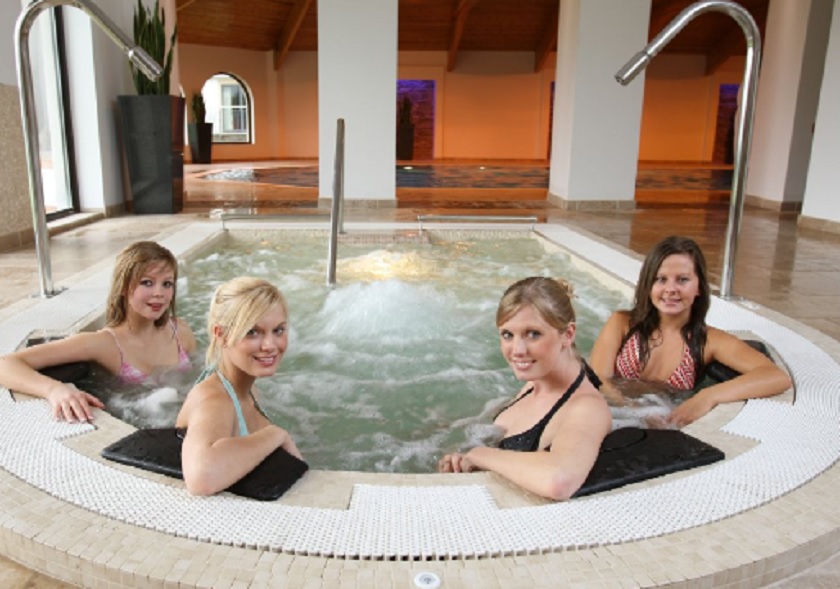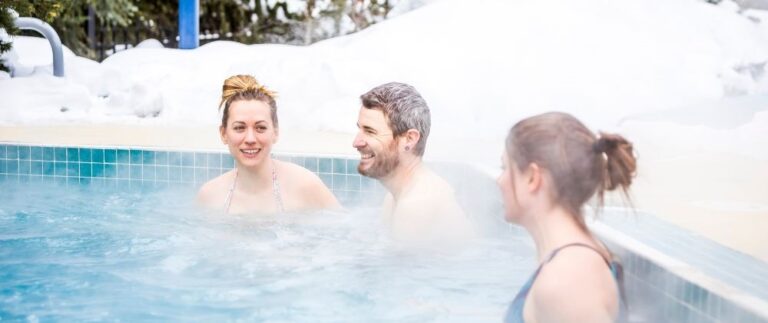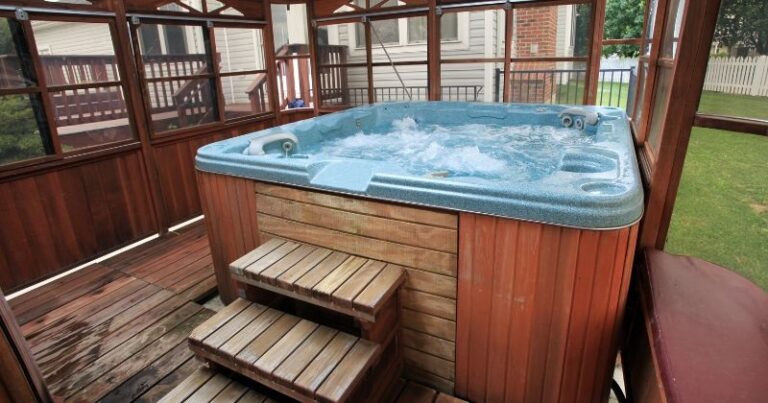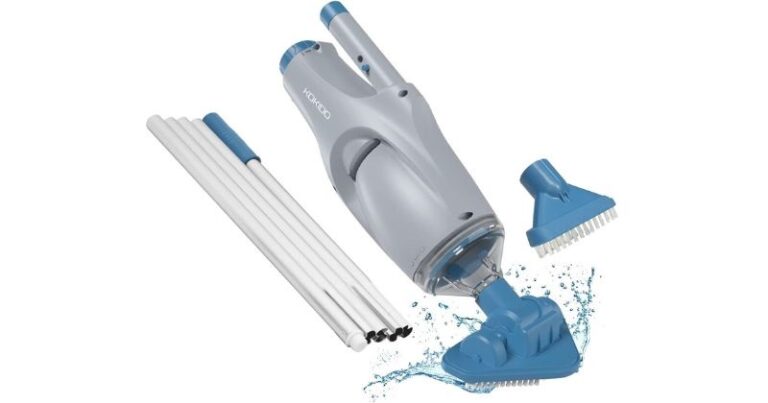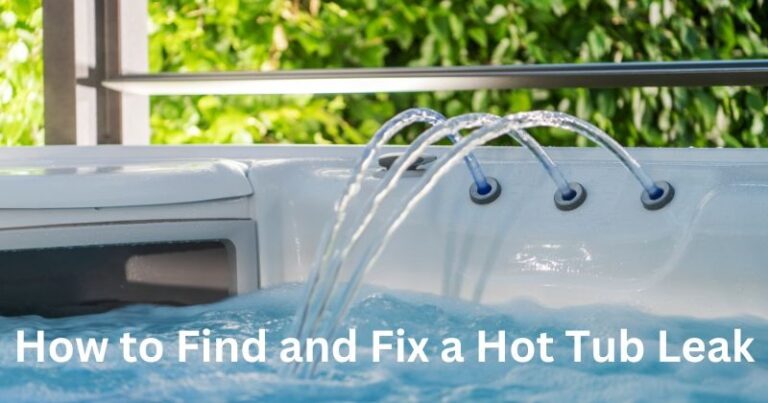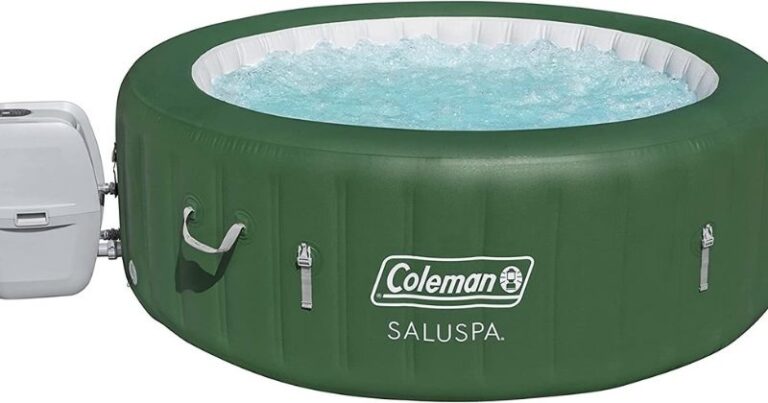How fast do hot tubs heat up? Hot tubs are a delightful addition to any home, providing relaxation and therapeutic benefits. If you’re considering purchasing a hot tub or already own one, you might be wondering how quickly it heats up. In this article, I’ll explore the factors that influence hot tub heating speed, average heating times for different types of hot tubs, and valuable tips to speed up the process. So, grab a comfortable seat and let’s dive into the world of hot tub heating!
Understanding Hot Tub Heating Systems
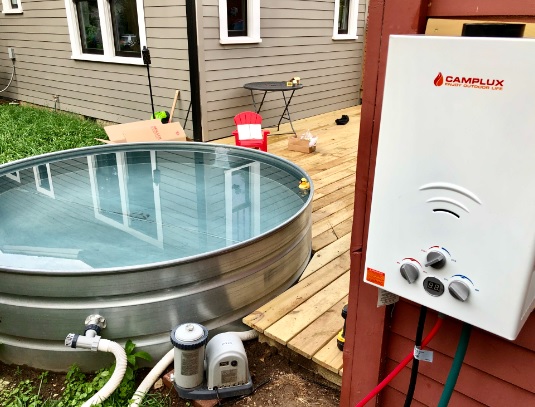
Hot tubs rely on different heating systems to warm up the water. Understanding the various types will help us grasp the heating speed dynamics.
Here’s my hot tub recommendation
Electric Heating Systems
Electric heating systems are commonly found in hot tubs. They use heating elements submerged in the water to generate warmth. The power rating of the heater and the type of heating element significantly impact the heating speed.
Gas Heating Systems
Gas heating systems, fueled by propane or natural gas, offer an alternative to electric systems. They heat the water using a gas burner, which results in faster heating times compared to electric heaters. However, gas heating efficiency can vary depending on external factors.
Heat Pump Systems
Heat pump systems are energy-efficient heating options that extract heat from the surrounding air and transfer it to the water. They work similarly to air conditioners in reverse. The heating speed of heat pumps is affected by ambient temperature.
Factors Affecting Hot Tub Heating Speed
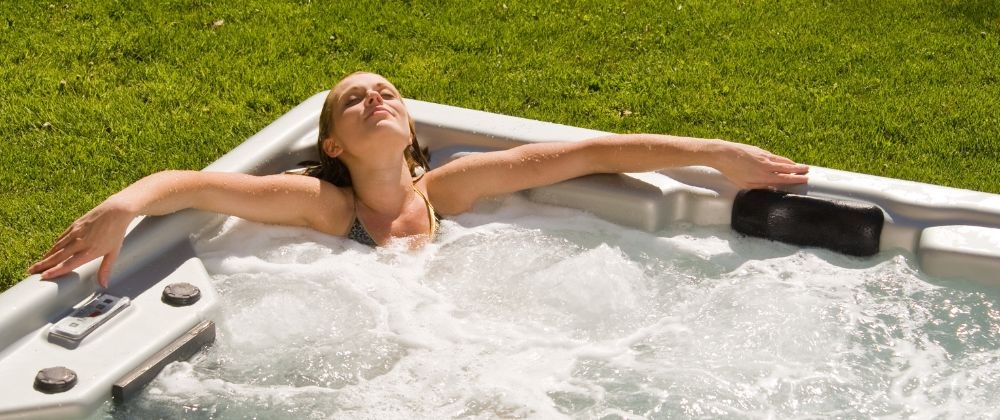
Several factors come into play when it comes to hot tub heating speed. Let’s explore both external and internal factors that influence how quickly your hot tub warms up.
External Factors
Ambient Temperature
The temperature of the surrounding environment affects how fast your hot tub heats up. In colder climates, it takes longer for the hot tub to reach the desired temperature. Proper insulation and cover usage can help mitigate the impact of colder ambient temperatures.
Insulation Quality
The quality and effectiveness of your hot tub’s insulation play a crucial role in heating speed. Well-insulated hot tubs retain heat more efficiently, resulting in faster heating times.
Cover Efficiency
Using a high-quality, properly fitting cover helps minimize heat loss and keeps the water warmer for longer periods. A well-maintained cover enhances heating speed and energy efficiency.
Hot Tub Size and Volume
Larger hot tubs with a higher water volume naturally take longer to heat up than smaller ones. It’s important to consider the size of your hot tub when estimating heating times.
Internal Factors
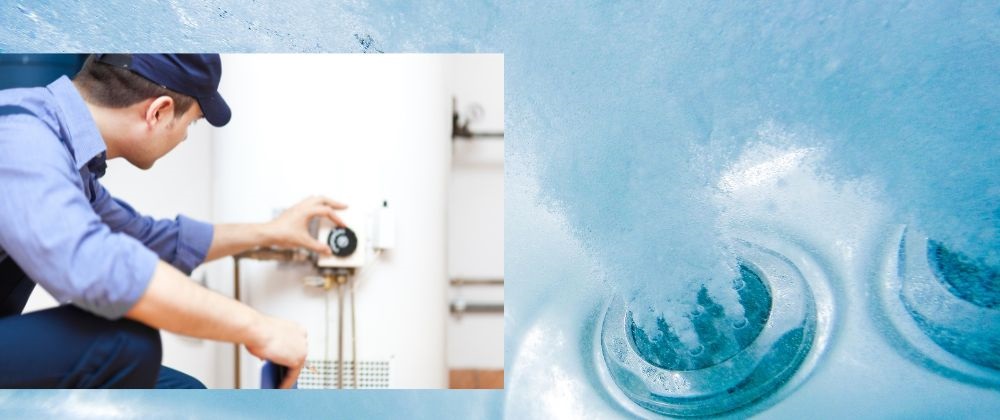
Heater Power Rating
The power rating of the hot tub’s heating element directly impacts the heating speed. Higher wattage heaters generally heat the water faster than lower wattage models.
Heating Element Type
Different types of heating elements, such as titanium or copper, can affect the heating speed. Titanium elements, for instance, have faster heat transfer properties compared to other materials.
Water Circulation and Jet System
Efficient water circulation and a properly functioning jet system play a role in hot tub heating speed. A well-designed jet system helps distribute heat evenly throughout the tub, resulting in faster and more consistent heating.
Average Time for Hot Tubs to Heat Up
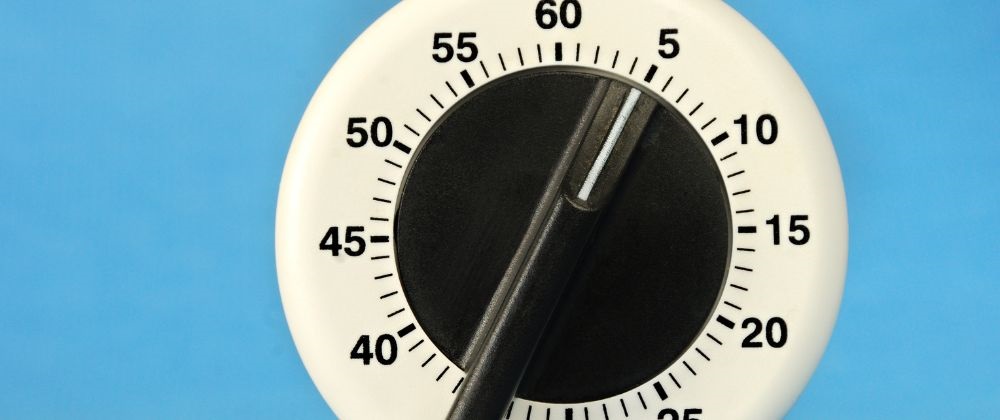
Now that we understand the factors influencing heating speed, let’s discuss average heating times for different types of hot tubs.
Electric Heating Systems
For small to medium-sized hot tubs with electric heating systems, you can expect the water to reach a comfortable temperature within 8 to 12 hours. Larger hot tubs may take 12 to 24 hours or even longer to heat up fully. Keep in mind that insulation quality and cover efficiency can significantly impact these times.
Gas Heating Systems
Hot tubs equipped with gas heating systems typically heat up faster than electric counterparts. Smaller hot tubs may reach the desired temperature in as little as
4 to 6 hours, while larger hot tubs may take around 6 to 12 hours. The heating speed can also be affected by the gas burner’s BTU (British Thermal Unit) output and the efficiency of the heating system.
Heat Pump Systems
Heat pump systems offer energy-efficient heating but may take longer to heat up compared to electric or gas systems. Heating times with heat pumps can vary depending on the ambient temperature. In warmer climates, heating times can range from 12 to 24 hours, while in colder climates, it may take 24 to 48 hours or more to reach the desired temperature.
Tips to Speed Up Hot Tub Heating

If you’re looking to expedite the hot tub heating process, here are some helpful tips:
Optimizing Insulation and Cover Effectiveness
- Add additional insulation layers: Consider adding extra insulation to the hot tub cabinet or using insulating blankets to reduce heat loss.
- Invest in high-quality thermal covers: Upgrading to a well-insulated, properly fitted thermal cover can significantly enhance heating speed and efficiency.
- Properly seal gaps or leaks: Inspect your hot tub for any gaps or leaks that may contribute to heat loss and address them promptly.
Utilizing Auxiliary Heating Methods
- Preheating the water: To give your hot tub a head start, consider preheating the water using a kettle or bucket heater before filling the tub. This can reduce the overall heating time.
- Using a solar cover: During the daytime, utilize a solar cover on top of your thermal cover to harness the sun’s heat and supplement the heating process.
Water Temperature Maintenance Practices
Keep the hot tub covered when not in use: Even if you’re not using the hot tub, keeping it covered helps retain heat and reduces the heating time for subsequent sessions.
Use a thermal blanket: To further minimize heat loss, place a thermal blanket on the water’s surface. This extra layer of insulation can preserve heat effectively.
Troubleshooting Slow Heating Issues
If you notice that your hot tub is taking an unusually long time to heat up, there might be underlying issues. Consider the following troubleshooting steps:
Identifying Potential Problems
- Malfunctioning heating element: A faulty or damaged heating element can significantly impact heating speed. Check for any signs of malfunction and consider a replacement if necessary.
- Poor water circulation: Inadequate water circulation due to a clogged filter or malfunctioning pump can hinder heating efficiency. Ensure proper maintenance and address circulation issues promptly.
- Inadequate power supply: Insufficient power supply to the hot tub’s heating system can lead to slower heating. Consult a professional electrician to assess and address any electrical issues.
Troubleshooting Solutions
- Checking and replacing faulty heating elements: If the heating element is the culprit, contact a hot tub professional to inspect and replace it with a compatible and properly rated element.
- Inspecting and cleaning the circulation system: Regularly clean and maintain your hot tub’s circulation system, including the filter and pump, to ensure optimal water flow and heating efficiency.
- Consulting a professional for electrical issues: If you suspect electrical problems, it’s best to seek the expertise of a qualified electrician who can diagnose and resolve any wiring or power supply-related issues.
FAQ’s about Hot Tub Heating
As hot tub heating is a common topic of interest, we’ve gathered some frequently asked questions to provide you with more valuable insights. Let’s dive into the most common queries and their respective answers:
How long does it take for a hot tub to heat up?
The heating time for a hot tub can vary depending on several factors. Electric heating systems typically take 8 to 12 hours for small to medium-sized hot tubs, while gas heating systems can heat up the water in 4 to 6 hours. Heat pump systems, which are more energy-efficient but slower, may take anywhere from 12 to 48 hours based on the ambient temperature.
Can I speed up the hot tub heating process?
Yes, there are several methods to expedite the hot tub heating process. First, ensure your hot tub is properly insulated and has a high-quality thermal cover to minimize heat loss. Preheating the water using a kettle or bucket heater before filling the tub can give it a head start.
Additionally, utilizing a solar cover during the daytime and practicing proper water temperature maintenance by keeping the tub covered when not in use can help retain heat and speed up heating times.
What should I do if my hot tub is taking longer than usual to heat up?
If your hot tub is experiencing slower-than-usual heating, there may be underlying issues. Check for any signs of a malfunctioning heating element and consider a replacement if necessary. Ensure proper water circulation by inspecting and cleaning the circulation system, including the filter and pump.
If you suspect electrical problems, consult a professional electrician to assess and address any wiring or power supply-related issues
I hope these answers provide clarity regarding hot tub heating times and ways to optimize the heating process. If you have any more questions or need further assistance, feel free to reach out to me.
For more information about hot tubs you can check out our Hot Tub Resources here: https://sitbacklounge.com/hot-tub-resources/
In Conclusion
Hot tub heating speed depends on various factors, including the type of heating system, external conditions, and internal components. Electric, gas, and heat pump systems each have their own heating times, with additional factors like insulation, cover quality, and hot tub size playing significant roles.
By optimizing insulation, utilizing auxiliary heating methods, and practicing water temperature maintenance, you can speed up the hot tub heating process. Should you encounter slow heating issues, troubleshooting the heating element, water circulation, and power supply can help resolve the problem.
Remember, the enjoyment and relaxation that hot tubs provide are worth the wait. Understanding the heating dynamics and implementing the tips shared in this article will ensure you get the most out of your hot tub experience.
For more information and resources on hot tubs, recliners, and other home furnishings, be sure to check out our website, sitbacklounge.com. I have a comprehensive sitemap where you can explore various topics related to furniture and home décor.
Remember, a hot tub is a haven of relaxation and rejuvenation, and knowing how fast it heats up allows you to plan and enjoy your hot tub sessions to the fullest. So sit back, relax, and let your worries melt away as you soak in the warm embrace of your hot tub.
If you’re interested in exploring different types of recliners for ultimate comfort, head over to our Recliner Buying Guide for expert advice and recommendations.
That concludes our guide on how fast hot tubs heat up. I hope you found this article informative and helpful. If you have any questions or suggestions, feel free to leave a comment below. Happy hot tubbing!
